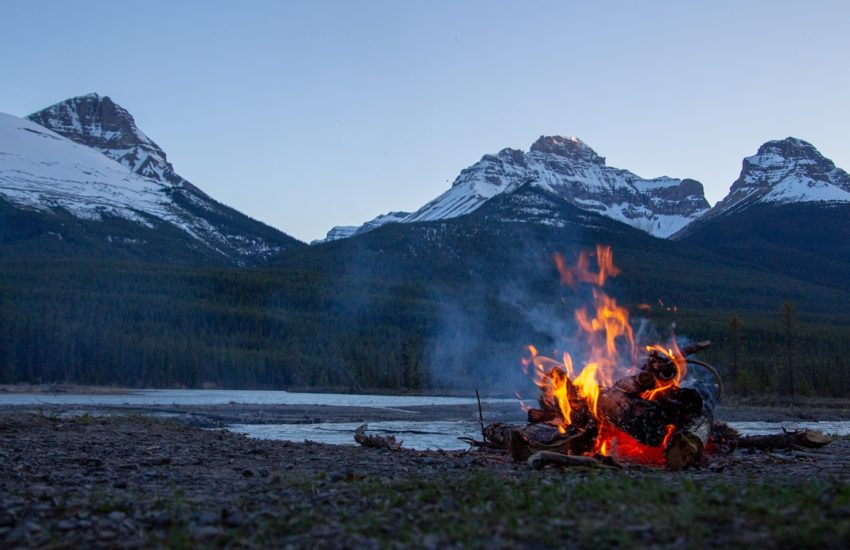Just as in the real world, sleep and downtime are necessities for Dungeons and Dragons adventurers.
Resting is mechanically important not just to avoid exhaustion, but to regain health, spell slots, class features, and much more.
- Check these out:
But for a game where you’re charging headfirst into dungeons, navigating through political spiderwebs, and getting rowdy at taverns, “taking a rest” doesn’t seem like the most exciting thing you could be doing as your heroic alter-ego.
And, well, one could argue that that’s the whole point.
Where DMs come into trouble with rests in their games is that they either linger too long on how a rest plays out, or they don’t go far enough in making it an actual encounter.
Here are a few ways to avoid having your parties members fall asleep at the table while their characters get some in-game R&R.
Don’t linger too long on specific watches
If the party is camped out in the wilderness for the night, you’d expect them to do the responsible thing of having a watch set throughout the night, right? But given that everyone needs to sleep, the characters will likely be waking each other up every few hours to switch off shifts.
Here’s the thing; you don’t need to give a detailed description of the eventless night to every person that wakes up, one-by-one.
If you have some interesting things prepared that may be noticed in the night, that’s great! Have the party figure out who is taking a watch (and in what order), and then before anyone clicks that “long rest” button on D&D Beyond, have every one of the watchers roll a perception check at the same time.
If someone rolled high enough to see whatever it was that you prepared, simply add it into the overall description of what was seen in the night, and ask the player who saw if it they’d like to do anything about it.
You’ll get through night a lot faster than going through the whole process of “You wake up, here’s what you see. Roll a perception check. Here’s what you see now. Do you want to do anything? Okay a few hours go by. Who do you want to wake up to take next watch? Okay. They wake up. Here’s what they see…”
It’s fine to not have anything prepared for nighttime
I hardly think it lowers the stakes for the party if you just tell them — after their group perception checks from the previous point — that nothing of note happens during the night. They’ll be grateful to have an uninterrupted rest, get their abilities back, and to take on a new day.
It makes sense, too. Wild animals, monsters, or bandits accosting a camp of adventurers probably isn’t all that common (though obviously that’s up to the DM), so it’s not like you have to bend over backwards to justify the fact that nothing really happened throughout the night.
If you do plan something, go big
A rabbit darting out of some bushes tempting the Ranger to track it down for some morning meat is all well and good, but then the rest of the players have to sit through a low-stakes game of survival and perception checks.
If you do decide to bring in something that a watcher of the night would spot, make it interesting. Make it carry some weight.
The mystery of a woman’s scream from the roadway, leaving the watcher with the tough decision of staying put, going to help, or waking up the whole party for some back up.
The faint clanging of plate armor as a rival adventuring party sneaks up to surround the camp, with a surprise round being determined by how quickly the watcher can call out to their allies.
The obvious signs of magic being cast in the far distance, followed by other arcane explosions as some sort of fight? ritual? practice? takes place a few miles away.
Leave individual dreams on notes or DMs
If you’re the kind of DM that builds character growth and maybe even a little foreshadowing into dreams, that’s awesome! But it can drag out a little bit if you’ve got a sizable party. Consider writing out what each character dreams on notes and then handing/sending them out during the rest. It gives the players who aren’t on watch something to read and consider, and keeps them private, just as dreams usually are.
Don’t entertain (too much) solo excursion
If your Warlock wants to check in with their patron, or if your Ranger wants to go snag that rabbit, don’t tell them “no,” but don’t let their solo time in the spotlight drag on, either.
Just because everyone else is “sleeping” doesn’t mean that it’s any less lame for other party members to have to sit around while one person plays the main character.
If it’s looking to be a lengthy patron discussion, or if that Ranger finds a cave they want to explore, maybe let the rest of the party go on an irl break while you gently prod that player back towards the group.
Or, at the very least, make sure that everyone is getting their solo time at some point, if one player consistently insists on having it.
Just fast forward
It may seem a little anticlimactic, but who says that sleeping has to have a climax in the first place?
If your party wants to rest, let them rest. After they set up camp, determine watches, and tuck in for the night, you can easily hit them with a “the night goes by without incident — everyone wakes up fresh and ready for a new day.”
The same goes for short rests. All you need to do is ask if anyone is doing anything specific to give them a chance to RP a little. If not, no worries! “An hour goes by. You all feel a little better.” Easy as that.
If one of your players says that they wanted to have done something during the night, ask them what it was. It likely would not have impeded the party from making it to morning as they were, so tell that player that they can play out that discussion/excursion/RP real quick right now, or after the session when it’s just you and them.
Ten minutes may not seem like a lot for the DM to have a midnight chat with a PC, but it can drag on for the players who are “sleeping” and just waiting for morning to start.
You’re main job as a DM is to get players to a table and keep them there (otherwise there is no D&D), so be sure that the enjoyment of the group isn’t being jeopardized just to make one player happy.
…But that’s an another article for another day.
- Check these out:

